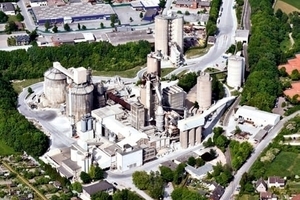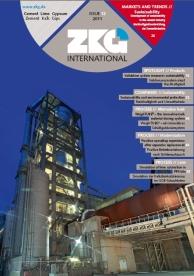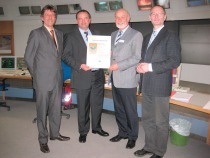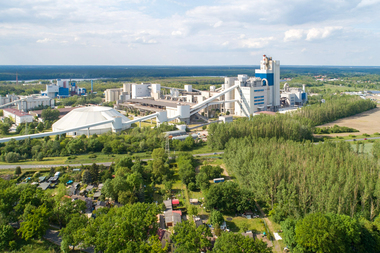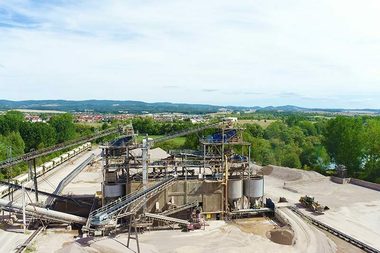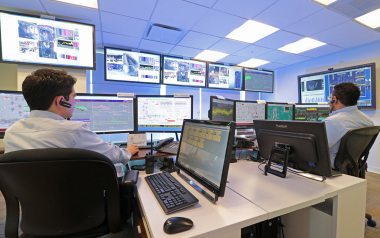Sustainability and environmental protection
In 2011 the CEMEX WestZement GmbH celebrated its anniversary “100 years Kollenbach cement plant (Fig. 1)”. 100 years ago Arnold Bleckmann as well as Franz and Josef Bomke founded the “Beckumer Portland-Zementwerk Bomke & Bleckmann”, the forerunner of today’s plant Beckum-Kollenbach of CEMEX WestZement GmbH. The plant was erected in 1912, and on 15.03.1913 the first railway carriage with cement left the plant site. Today about 150 employees are working in the plant, which is one of the most important employers in the region. Henning Weber, the managing director of CEMEX WestZement GmbH, said in his ceremonial address that “a history of innovations in production methods and of environmental engineering began, some of which were pointing the way to the future of the entire cement industry”, when the plant was founded in 1911. “Let me give you only one example. In 1953 the Beckum-Kollenbach cement works revolutionized the technology of clinker production and, from then onwards achieved energy savings of 30 %. It was here where the first rotary kiln plant with suspension preheater was commissioned. This basic technology still today sets the tone of the cement industry in the form of the cyclone preheater.” Weber emphasized particularly that CEMEX is aware of its social responsibility as part of the Beckum community. Eric Wittmann, the CEO of CEMEX Deutschland AG, the parent company of CEMEX WestZement GmbH, underlined the value of sustainable development in his address: “Our company takes a consistent approach as regards sustainability and environmental protection. In this regard we follow a strategy that is binding for the entire group, i.e. an environmentally friendly production, conservation of the natural resources and maximum labour safety standards play an extremely important role for us.” Wittmann explained that the corresponding goals in the mentioned fields today are a natural part of the daily work of CEMEX. In this connection, for example, the SNCR system was optimized, a noise and dust reduction program was started and an improved concept of finish grinding was introduced in the last few years. Currently, further capital is being invested in future technology: As the first CEMEX plant worldwide Kollenbach will get an whirlwind mill, a technically exacting pilot project that is to further promote the saving of primary raw mterials.

